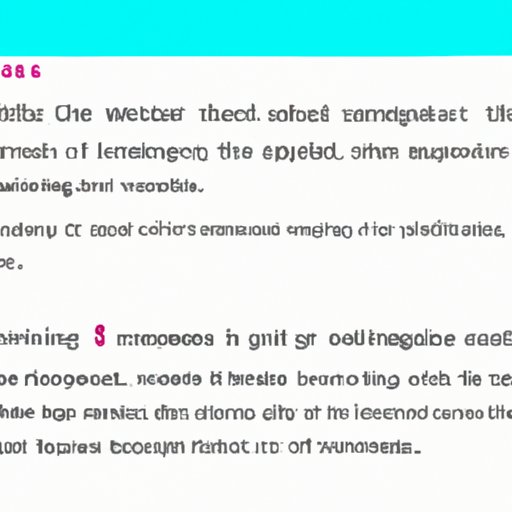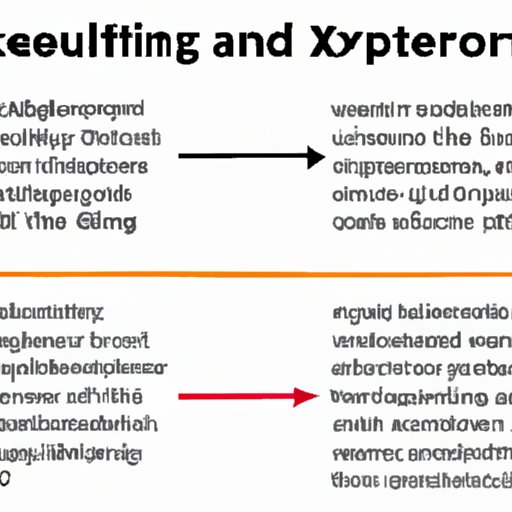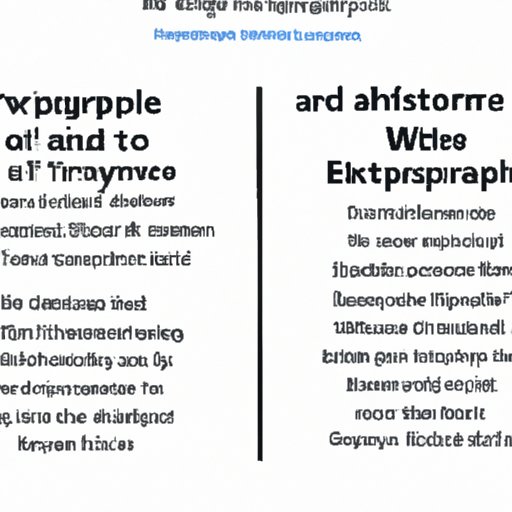Introduction
Writing is an important skill that is used in many aspects of life. There are two main types of writing: narrative and expository. Understanding the differences between these two types of writing can help you to determine which form best suits your needs. This article will explore the unique characteristics of each type of writing, as well as how to recognize the difference between them.

Exploring the Unique Characteristics of Expository Writing vs. Narrative Writing
Expository writing is a type of writing that provides information about a topic in an organized manner. It is often used to explain or inform. Examples of expository writing include essays, research papers, reports, and other written documents that provide information.
Narrative writing is a type of writing that tells a story. It is used to share experiences or to tell stories. Examples of narrative writing include novels, short stories, plays, and other written works that involve characters and plot.
When comparing expository and narrative writing, it’s important to consider how each type of writing is structured. Expository writing typically follows a linear structure, with a beginning, middle, and end. The introduction introduces the topic, the body provides information about the topic, and the conclusion wraps up the piece. In contrast, narrative writing is not always linear. It often follows a more open-ended structure, allowing the writer to explore different angles and perspectives.

A Comparison of the Structural Features of Narrative and Expository Writing
The structure of narrative and expository writing is also different. Narrative writing typically includes characters, setting, plot, and conflict. These elements work together to create a compelling story. Expository writing, on the other hand, is typically more focused on providing facts and information. It may include an introduction, body paragraphs, and a conclusion, but it does not necessarily need to include all of these elements.

Distinguishing Between Narrative and Expository Writing Styles
Each type of writing has its own unique style. Narrative writing typically employs vivid language and imagery to capture the reader’s attention. It may also include dialogue and action to move the story along. Expository writing, however, typically uses more formal language and is focused on conveying facts and information in an unbiased manner.
How to Recognize the Difference Between Narrative and Expository Writing
When trying to identify the difference between narrative and expository writing, there are several factors to consider. First, analyze the content of the writing. Is it focused on telling a story or conveying information? Second, examine the purpose of the writing. Is it meant to entertain or to inform? Third, look at the organization of the writing. Does it follow a linear structure or is it open-ended? By considering these factors, you can better understand the difference between narrative and expository writing.
Conclusion
In conclusion, narrative and expository writing are two distinct forms of writing with their own unique characteristics. Expository writing is focused on providing facts and information in an organized manner, while narrative writing is focused on telling a story. By understanding the differences between these two types of writing, you can choose the right form for your needs.
(Note: Is this article not meeting your expectations? Do you have knowledge or insights to share? Unlock new opportunities and expand your reach by joining our authors team. Click Registration to join us and share your expertise with our readers.)
